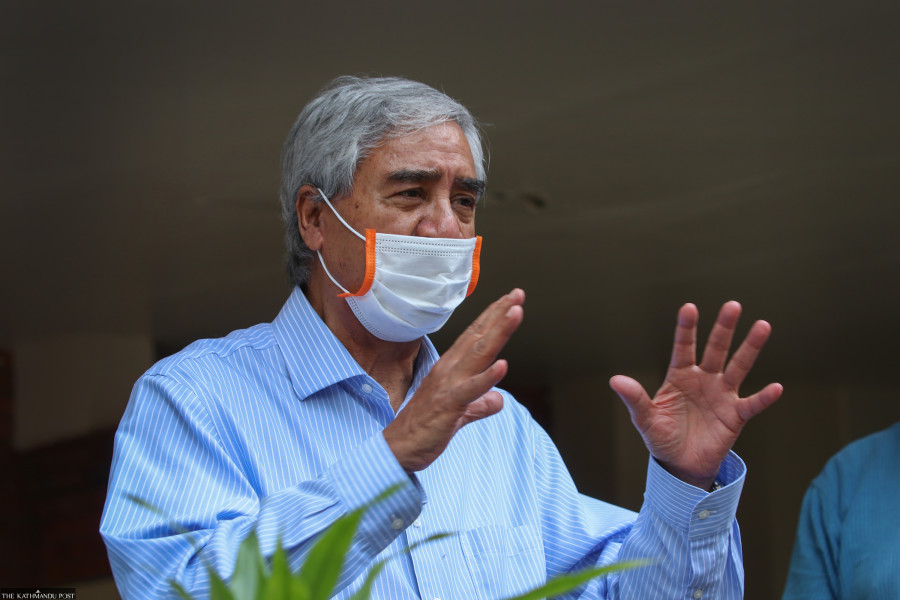Editorial
First on the list
Deuba needs to channelise his focus on fighting the coronavirus pandemic.
In 2017, when Sher Bahadur Deuba became prime minister, he set a record—and got bad press—by forming the largest ever Council of Ministers in the country’s history by packing it with 50 ministers. Two decades ago, in 1996 also, Deuba led a 48-member Council of Ministers. A bloated Council of Ministers in the past could be attributed to coalition compulsions. During his fifth stint, Deuba does not have the luxury of setting similar records as the constitution has fixed the maximum number of ministers at twenty-five.
The prime minister, however, is once again leading a government backed by the Communist Party of Nepal (Maoist Centre), a faction of the Janata Samajbadi Party and Rastriya Janamorcha. Deuba’s prime ministership comes amidst, albeit, a difficult time. And he has his work cut out for him.
First and foremost, Deuba needs to channelise his focus on fighting the coronavirus pandemic. As experts have warned of a second wave peak before the country is hit by a third wave, the best means to save lives is vaccinating as many people as possible. But even after four days in office, Deuba has not appointed a health minister. After taking the oath of office, Deuba on Tuesday appointed four ministers—home, energy, law and parliamentary affairs and finance.
It is understandable that Deuba has to “adjust” politicians from support partners in his Cabinet, but he must be able to convince them when it comes to his government’s priorities and pressing issues. Public health should be Deuba’s topmost priority, and to fight the virus and ensure that as many people get vaccinated, he must appoint an efficient health minister at the earliest.
KP Sharma Oli, who was ousted by the Supreme Court, has left behind quite a mess. Oli made a mess of governance, as, for the majority of later years in office, he was largely embroiled in partisan politics and intra-party feud. It is incumbent upon Deuba to clean that up whether he likes it or not. He needs to pull out all the stops to fix what’s broken, and also to improve his own image, since he is not known as a prime minister with acumen to deliver on the governance front. His past stints are replete with controversies; and Deuba looks like a politician who cannot do without a controversy—it either precedes him or follows him.
The Deuba government’s other priority should be revising the budget. Despite being reduced to a caretaker prime minister, because of his own decision to dissolve the House, Oli had introduced a full budget through an ordinance. The Supreme Court also has observed that the decision to bring a full budget a week after dissolving the House was inappropriate. The Deuba government should steer clear of a distributive and populist budget, and channelise the funds in areas of public interest.
Deuba also needs to tread carefully on the foreign policy front. Oli’s flip-flops have put Nepal in a bit of an uncomfortable position, and the responsibility of fixing the country’s foreign policy—vis-à-vis neighbouring India and China and others—has been thrust upon Deuba. He must move wisely when it comes to appointing his foreign minister. It is not yet clear if he is going to govern for six-eight months or 18 months. Regardless of that, he will do good if he avoids long-term decisions and focuses on short-term goals that are in the larger interests of the people.




 14.12°C Kathmandu
14.12°C Kathmandu














